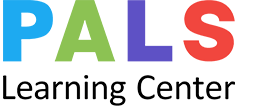The Power of Journaling: How Writing Daily Reflections Can Improve Academic Performance

Journaling can be a powerful tool for self-reflection because it encourages self-awareness and critical thinking. Plus, it may help students develop a deeper connection to their coursework or subject. This makes daily reflections essential in the learning experience.
At PALS Learning Center in Piscataway, we recognize the importance of interactive and engaging learning that immerses students in various writing tasks. Reflective writing can help enhance a learner’s writing, talking, and thinking patterns and make learning more enjoyable. Additionally, this approach empowers comprehensive skill development. Read on as we share how writing daily reflections can enhance academic performance and why we encourage it when tutoring students in Edison.
Understanding journaling and reflective writing
Journaling is not merely about keeping a diary. It encourages reflective writing that allows students to understand their own experiences and analyze their actions and feelings while learning. In addition, it allows them to examine their actions and thoughts throughout the learning process. All this helps learners become more self-aware while developing strategies and skills to overcome challenges.
All about the learner and their experiences
Journaling can also help improve a student’s academic performance and makes tutoring in Edison much more effective. This reflective practice encourages them to consider questions like:
- What went well?
- What can you do to achieve better results next time?
- What could you have done better?
These prompts foster reflective thinking and metacognition, which helps children improve their thought processes. In turn, writing daily reflections can help students become more engaged in learning.
Benefits of journaling to young learners
Journaling can help students develop emotional intelligence and self-awareness skills. It encourages independent writing that builds strength to persevere through frustrating areas. If they find themselves stuck, children can find ways to move forward with self-reflection.
Writing daily reflections also allows students to reflect on their learning experiences and share how their academic journey is going. In turn, they can learn to take charge of their studies while developing problem-solving and critical-thinking skills.
Self-expression and assessment
Journaling also fosters personal expression and creativity. Students can experiment with various writing styles — such as narratives, poetry, drawing, or brief notes — to discover their preferred method of self-expression.
Reflective writing also lets students evaluate and self-assess their work. It helps them set goals and determine whether they are closer to their desired objectives.
Empowering learners with journaling
Learn more about how writing can help your child succeed in school. Contact us here at PALS Learning Center to learn more about our tutoring services in Edison and Piscataway. We’re ready to provide an individualized learning plan that suits
Previous

